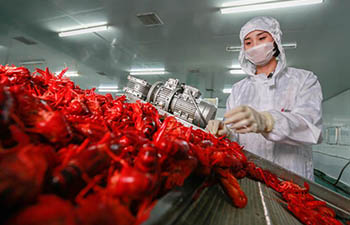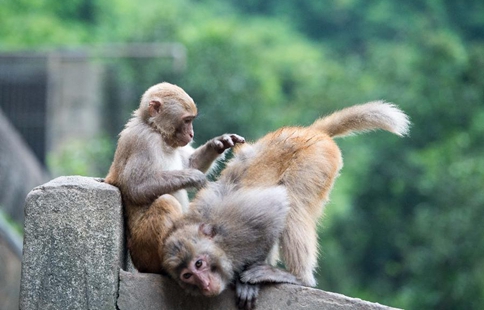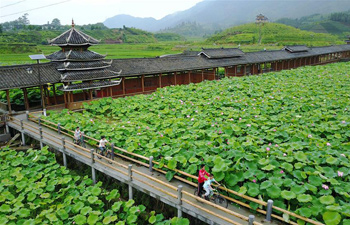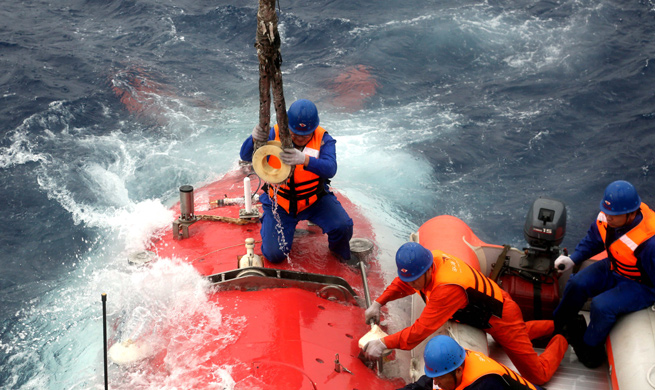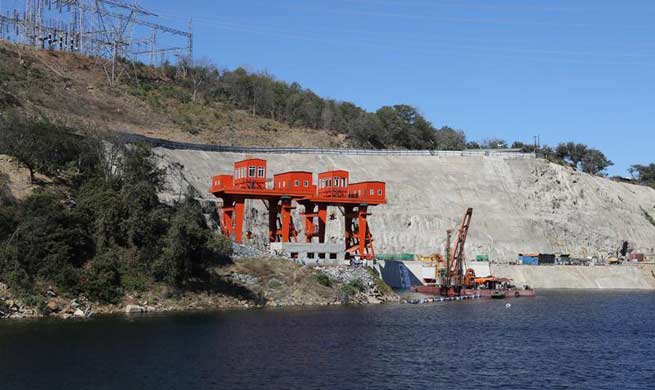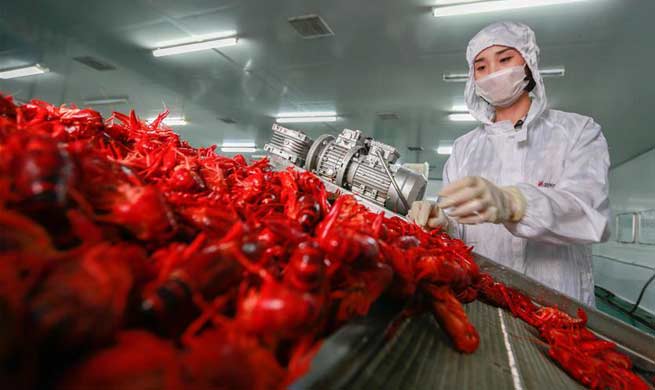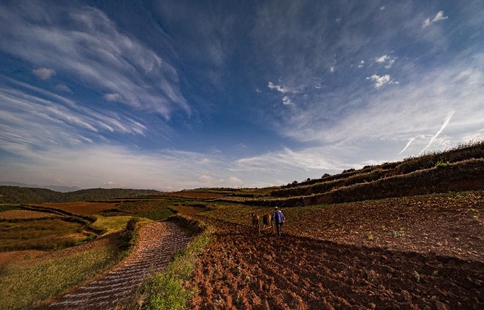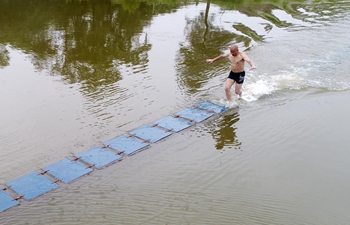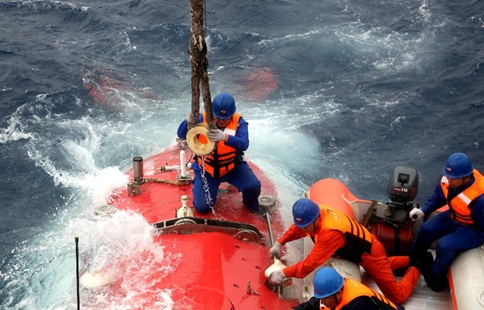LHASA, June 5 (Xinhua) -- Sixty-six year old village leader Konchog stands near wetlands, worried that the grass is still withered and yellow, not the usual lush green that signifies the arrival of summer.
He lives in Sharduy village near the foot of Mount Qomolangma, also known as Mt. Everest, the world's highest peak.
Qomolangma National Nature Reserve covers around 33,000 square kilometers of Tibet Autonomous Region and is home to roughly 90,000 farmers and herders.
Konchog knows little about the science behind climate change, but he has seen receding snow lines and felt the impact of a changing environment.
"The temperature definitely has gotten higher every year. Sometimes I don't need to wear as many clothes," he said.p It is already summer, but grass has not turned green in the wetland near the village, where farmers grow barley and other crops.
"It is time to sow seeds, so we need to act fast," he said.
Together with Lhundrup and Phurbu, the leaders of the neighboring Tsatse and Gangga villages, Konchog has called upon local residents to dig sluices in the wetland to help the grass grow.
The three Tibetans are members of Pendeba Society, a non-profit organization dedicated to conservation. The society helps them coordinate environmental efforts.
"If we do not act, the wetlands will disappear and the environment will change," said Konchog.
Established in 2009, Pendeba Society gathers villagers with practical skills to take part in environmental protection programs.
The Tibetan word "Pendeba" means people who work to benefit others, said executive director Tsering Norbu, 41, who began non-profit work in 2006 after leaving a government job.
The society has over 400 members, most of whom are farmers and herders.
"They help themselves and others, so that we live in harmony with the environment," said Tsering.
"Most people living in the reserve are poor, and their lives depend heavily on the environment. We help people improve their living conditions as well," said Tsering.
The society uses funding from the government and donations to help herders build strong fences to house their cattle, give public lectures on environmental protection, and build small flood-prevention facilities to mitigate the impact of seasonal flooding on farmland. It also helps organize anti-poaching projects and promote the use of clean energy such as solar and gas.
"Our work has not gone down the drain, we have been welcomed by local residents, and we are calling for more people to join our efforts," Tsering said.





